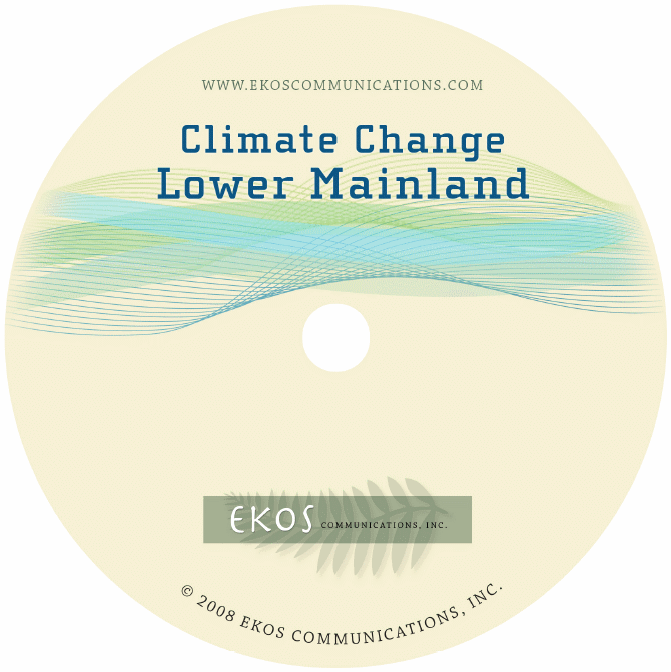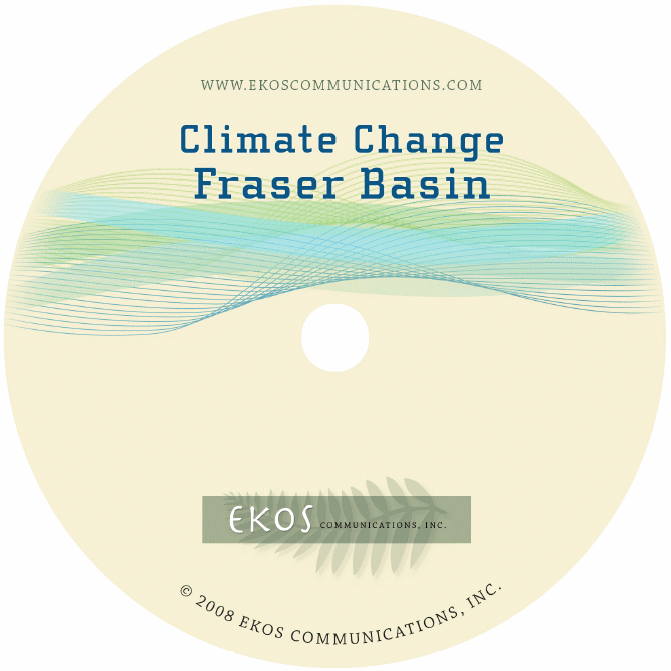Climate Change in Our World
Explore and learn about the impacts of climate change and find out how you can make a difference with Climate Change in our World. The Met Office Hadley Centre, British Antarctic Survey and UK Government have harnessed Google Earth technology to present you with an interactive animation showing how climate change and global temperature rises could affect our world over the next 100 years.
April 2009
Community News Archive
From its extraction through sale, use and disposal, all the stuff in our lives affects communities at home and abroad, yet most of this is hidden from view. The Story of Stuff is a 20-minute, fast-paced, fact-filled look at the underside of our production and consumption patterns. The Story of Stuff exposes the connections between a huge number of environmental and social issues, and calls us together to create a more sustainable and just world. It'll teach you something, it'll make you laugh, and it just may change the way you look at all the stuff in your life forever. Written by Annie Leonard and Produced by Free Range Studios.
Graphic from UNEP showing how the world's water is distributed. Source: WWAP 2006 based on Shiklomanov and Rodda 2003.
Islands of Achievement: People Building Hope
Hopebuilding wiki was created by Rosemary Cairns to share stories of achievement by ordinary people who are doing extraordinary things to make their world a better place to live in, but whose stories are not as widely known as they should be.
Adapting to Climate Change in the Fraser Basin
As part of the Natural Resource Canada funded project on climate change adaptation in the Fraser Basin of British Columbia, EKOS Communications have produced two 12 min. videos designed to stimulate dialogue among local government representatives, scientists and engineers on how to adapt water related infrastructure.
 |
Video 1: Adapting to Climate Change in the Lower Mainland |
 |
Video 2: Adapting to Climate Change in the Fraser Basin |
New Report on Energy Efficiency
The Council of Energy Ministers has produced its first publication, Moving Forward on Energy Efficiency in Canada – A Foundation for Action. It highlights the opportunities for energy efficiency to realize significant reductions in pollution while contributing to other important objectives. The report also outlines specific roles and opportunities in three sectors of the economy, including the built environment.
Walk Score
Walk Score is a tool that uses Google Map data to analyse the walkability of a location such as your home, or future home. Walk Score shows you a map of what's nearby and calculates a score based on the proximity of that location to local amenities. Living in a house in a walkable neighbourhood is good for your health and good for the environment.
Zerofootprint Calculator
The ZerofootprintTM Calculator measures your impact on carbon and other ecological impacts including water, trees and land. You can compare your footprint with those living in other countries and learn how to reduce through a series of footprint reducing tips. There is also a netowrking element that allows you to make pledges and commit to reduction goals. Individuals can form groups around goals and track their success through time.
Sebastopol (CA) Peak Oil Report
In April, a City-appointed citizen task force on energy vulnerability in the Northern California town of Sebastopol released its report, "Charting a Path for a New Energy Future for Sebastopol." The report identifies the vulnerabilities peak oil may pose to the Sebastopol community, and makes recommendations for City Council actions to respond.
Common Energy UVic is an emerging network of students, staff, faculty and regional partners working to find solutions to climate change in Victoria. Participants can read, edit, and build the site - it constantly evolves as the network and the projects do.
An important new site, WiserEarth, that provides substantive individual and networking opportunities for connections between researchers, practitioners, artists, decision-makers, business and civil society, offered by Paul Hawkin, author of The Ecology of Commerce.
Breathing Earth is a visual simulation displaying the carbon dioxide emission levels of every country in the world, as well as their birth and death rates - all in real time.
Peak Oil and the Future of Energy
Sunday, November 26, 2006 at 7:30pm
at the Centennial Theatre - 2300 Lonsdale Avenue, North Vancouver
David Hughes, of the Geological Survey of Canada, delivers a thought-provoking presentation about energy production and consumption in Canada and the world. Presented by Mayor Darrell Mussatto and the City of North Vancouver, in partnership with the GVRD and Capilano College, Mr. Hughes will discuss how quickly the world¹s remaining energy reserves are declining, steps that must be taken to ensure a sustainable energy future and what this means for the residents of the Lower Mainland.
The presenter, David Hughes, is a geologist with more than 30 years experience studying the energy resources of Canada. Mr. Hughes¹ analysis of global energy issues has been presented to industry and government officials across Canada and the United States. For more information about this event please contact The City of North Vancouver www.cnv.org or call 604-985-7761.
| view the pdf |
Canadians face a future that will be defined by change, with many new economic opportunities, and with a growing need to build a satisfactory relationship between the environment and development. Over the past three decades, opportunity has frequently been associated with new technologies, especially ITC (information technology and communications). More recently, biotechnology has been highlighted as a potential source of long-term economic, social and environmental benefits. Proponents suggest biotechnology can be a means to help Canada meet its sustainable development objectives, such as reducing greenhouse gases, improving water quality and reducing the use of pesticides. It could also provide employment and income opportunities through new value chains in agriculture, forestry and other natural resource sectors, savings for industry through greater material- and energy-efficient manufacturing, and health benefits through reduced environmental pollution.
This study has been prepared by an Expert Working Party on Biotechnology and Sustainable Development for Canada’s Future Economy (BSDE). The Working Party reports to the Canadian Biotechnology Advisory Committee (CBAC). The study is the first comprehensive effort undertaken in Canada to examine biotechnology prospects in relation to sustainable development.
| BSDE Executive Report - ENGLISH - interactive PDF.pdf | |
| BSDE Executive Report - FRENCH - interactive PDF.pdf |
Information on Community Decision Making Tools is now available at www.rural.gc.ca
The site contains information that has come from communities across the country, highlighting tools and techniques they have used to involve citizens in community decision making. You will find Tools, Case Studies, and Good Ideas. Readers are also encouraged to Tell Us Your Stories, of what has worked in their communities.
Community Accounts, developed by the Newfoundland and Labrador Statistics Agency in partnership with the Strategic Social Plan (SSP) of the Government of Newfoundland and Labrador and Memorial University, is an innovative information system providing users at all levels with a reliable source of community, regional, and provincial data. A public-wide, online data retrieval system for locating, sharing and exchanging information related to the province and its people, the Community Accounts provides users with a single comprehensive source of community, regional, and provincial data that would normally not be readily available, too costly to obtain, or too time consuming to retrieve and compile.